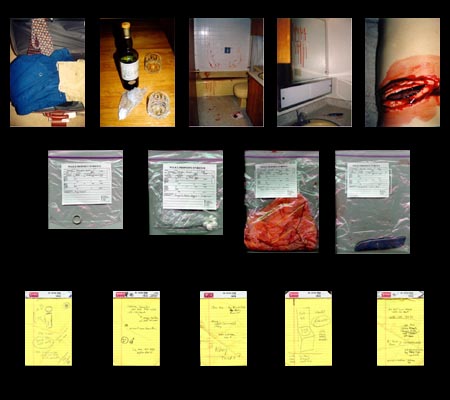Kidney Thefts
An Indian doctor named Amit Kumar was arrested in Nepal earlier this month, accused of being the leader of a "kidney theft ring" that supposedly took up to 500 kidneys from unwilling donors over the past nine years. Stories circulated that some poor and uneducated Indian peasants were even forced to give up their organs at gunpoint.
Stories of organ theft proliferate on the Internet, and surface once in a while in the mass media.
There are two basic types of organ-snatching stories: One involves a traveling businessman who meets up with a femme fatale, is drugged, and wakes up with an organ missing. The other involves vulnerable people (usually children and the poor) from Third World countries who are forcibly taken for their organs. A typical claim is that children in India, the Philippines, and Latin America are kidnapped (or killed) and their organs sold to rich Americans or Europeans.
Scary, huh? But is it true?
While newspapers and magazines profit from sensational headlines about vampiric organ thieves, the truth is that there is little evidence to suggest that organ theft rings operate in India or anywhere else.

Consent vs. force
As with many legal and criminal issues (for example, rape or abduction) the crux of the issue comes down to consent. Dr. Kumar claims that all the organs were willingly offered, and the logistics of organ transplant supports his defense.
It is virtually impossible to remove a usable organ from an uncooperative donor and place it in a recipient.
Kidney transplants are not simple procedures that can be done in someone's kitchen. Sophisticated medical equipment must be used, and donors and recipients must be carefully matched. Blood and tissue typing and histocompatibility tests must be done in advance (thus with the "victim's" cooperation). The operation would take between four and six hours and involve ten to twenty support staff, including three members of a surgical team, an anaesthesiologist, and two nurses.
It would be a practical impossibility in America or the West to assemble a large team of highly trained medical personnel willing to engage in such illegal and unethical behaviors. Even highly paid medical staff in India are unlikely to risk performing such operations, jeopardizing both their careers and reputations.
Theft vs. commerce
While tales of organ theft are very suspect, there certainly is organ commerce in the world.
In some countries selling one's organs is perfectly legal. In the United States, it is against the law, although some have suggested that legalizing it would save lives and be beneficial to all involved.
In India, for example, many adults voluntarily sell one of their kidneys. (Of course the dramatic scar looks the same whether the organ was stolen or sold.) Although the sale of kidneys is seen by many in the United States as morally objectionable, it should be remembered that in India, as in many developing countries, sophisticated medical equipment is rare and in many cases the resources simply are not available to extract and preserve organs of those killed in accidents for later transplant. Few Indians who suffer from kidney failure can afford dialysis treatments, so they can either die or purchase a kidney.
In 1994, the Indian parliament passed a law making it illegal to buy or sell human organs for transplantation, but a loophole in the law allows people who are related to the recipient only by "ties of affection" to donate organs under some circumstances.
One can debate the ethics of exploiting poor people who are willing to sell their organs, but this should not be confused with organ theft. Dr. Kumar may in fact be guilty of the charges against him, though often when the truth comes out, it is much less horrific than first claimed.
Previous case
The last high-profile case of organ selling made headlines in December 1989 when a Turkish man named Ahmet Koc claimed that three months earlier, he had been brought to London, England, with the promise of a job. When he went in for a medical check, he was given an injection which he believed to be a blood test, but he woke up the next day to find that a kidney had been removed. He was told not to be upset, because he would be well paid for his loss.
It was later revealed that Koc lied. He was not the victim of organ theft; in fact he was one of four Turks who voluntarily sold their kidneys that day in September of 1989. He was apparently unhappy with the amount paid him, and went to the press with his story.
Although transplanting brokered kidneys was legal at the time in Britain, three London doctors who participated in the transplant were found guilty of professional misconduct.
The Dr. Kumar story this month is following a familiar pattern, complete with sensational claims and lurid headlines.
That Dr. Kumar, like many doctors, removed organs from the poor and uneducated is almost certain. Yet exploiting economically vulnerable people is hardly a crime — American businesses have done it for decades (just look at the huge payday loan industry). Whether Dr. Kumar is guilty of actually stealing kidneys from unwilling donors is far less likely, and another matter entirely. | 